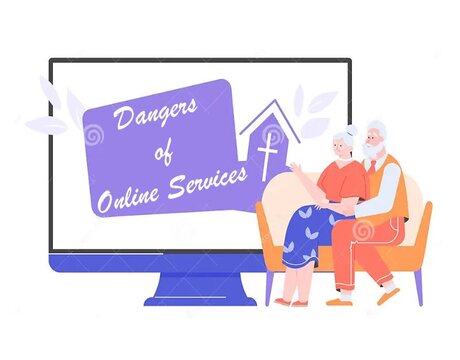Divine Retreat Centre UK – Official Website

Beware Of Our Tongue!
July 21, 2023
Our Jesus: Son of Man
July 21, 2023Based on a talk by Fr Joseph Edattu VC
Luke 15: 1-10: “The tax collectors and the sinners were all seeking the company of Jesus to hear what he had to say. The Pharisees and the scribes complained, saying, ‘This man welcomes sinners and eats with them.’ So, He spoke this parable to them: ‘What man among you with a hundred sheep, losing one, would not leave the ninety-nine in the wilderness and go off to find the missing one? And when he finds it, would he not joyfully carry it on his shoulders and, upon returning home, call his friends and neighbors to rejoice with him, saying, ‘I have found my lost sheep?’ Likewise, I tell you, there will be more rejoicing in heaven over one repentant sinner than over ninety-nine virtuous men who have no need of repentance. Or what woman with ten drachmas, if she loses one, does not light a lamp, sweep the house, and search thoroughly until she finds it? And upon finding it, calls her friends and neighbors to rejoice with her, saying, ‘I have found the drachma I lost.’ Similarly, there is rejoicing among the angels of God over one repentant sinner.'”
Repentance is a profound subject. Let’s delve into a facet of it. During and after the COVID-19 pandemic, many faithful individuals turned to online services. While the pandemic spread in 2020, there was a rise in online masses and live broadcasts. Many people – priests, laypersons, young and old – stepped forward to spread the Word of God through these platforms. The Word was presented in various formats on social media and TV channels.
The positive outcome was that families grew closer. People unfamiliar with Jesus got to learn about Him. Christians deepened their understanding of the Bible. After hearing diverse teachings, many have become well-versed in the Word of God.
However, there’s a downside. Some, after learning a small fraction of the Bible, take on the roles of preachers and teachers within their homes. They might push new religious ideas onto their families rather than reflecting upon themselves. This can exacerbate family tensions, potentially leading to increased stress and disputes.
The primary objective of preaching the Word of God online is to inspire repentance in the listeners. It’s not meant for dictation to others. The outcome of hearing God’s Word should be an increase in peace, love, joy, and happiness. If a family’s harmony is disrupted after engaging with online teachings, it could provide an opening for negativity. Anyone who disrupts this harmony becomes a stumbling block for their family.
For instance, if you’re a family’s leader or most influential member, it’s your duty to ensure peace. Misguided actions or dictations can disrupt familial harmony. It’s imperative for such influential individuals to be humble, fostering peace and unity instead of division.
Not everyone is called to preach. I preach because it’s my vocation. I must live the teachings I share; otherwise, I’d be a hypocrite. I reflect upon every word I preach, aiming to implement those teachings in my life.
For those who tune into the Divine Retreat Centre teachings, our desire is for your spiritual growth. The Word should guide you towards a harmonious, love-filled life, fostering unity in your families. If teachings cause division, animosity, or prevent spiritual growth, the Word isn’t being received correctly.
Mark 9:42 says, “If any of you put a stumbling block before one of these little ones who believe in me, it would be better for you if a great millstone were hung around your neck, and you were thrown into the sea.”
I recall a family who brought their son to our retreat center. They lamented his apparent lack of faith. After speaking with him, I found a mature, loving young man who followed Jesus differently than his parents. He critiqued their behavior, observing their lack of real change despite their fervent prayers. Many youngsters grow distant from spirituality because of negative role models.
Romans 14:13 says, “Let us therefore no longer pass judgment on one another but resolve instead never to put a stumbling block or hindrance in the way of another.” The preaching is meant for self-reflection, not judgment.
In Matthew 18:7, we are reminded, “Woe to the world because of stumbling blocks! Occasions for stumbling are bound to come, but woe to the one by whom the stumbling block comes!” If our actions sow discord within our families, no amount of prayers or online services can aid us unless we truly internalize the teachings.
In Isaiah 1:2, we’re reminded of how God’s children have at times rebelled, failing to recognize His guidance. Furthermore, in Isaiah 1:10-15, God questions the value of insincere worship and prayers, especially when there’s no genuine transformation in the worshiper’s life.
Remember, true spirituality demands a change of heart and a commitment to live according to God’s Word, not just profess it.
Repentance: Who is it for?
In this age of technology, the Word of God is accessible with just a click or a tap. These online religious services have one clear intention: self-reflection and personal transformation. They are designed for your spiritual growth, not that of your neighbor, spouse, or children.
I recall a family from my childhood parish. They were prosperous, involved in several businesses, including a profitable visa arrangement business. However, their reputation was tarnished due to their financial focus and strained relations with the church community. They distanced themselves from the Church after facing criticism from the parish priest for their questionable business ethics.
Enter Brother Anthony, an ex-policeman who had a transformative experience at the Divine Retreat Center in Potta. Guided by the Holy Spirit, he settled in our village and began several prayer groups. One day, the Holy Spirit led him to the house of this very family. The initial reception was cordial, but when Brother Anthony mentioned Jesus, he was hastily asked to leave.
Tragedy struck this family soon after; the father suffered an accident, became paralyzed, and their business crumbled due to a fraudulent agent. Overwhelmed by debt, they had to sell everything they owned. The wife, attributing their misfortunes to their poor treatment of Brother Anthony, sought him out to apologize. However, Brother Anthony clarified that their miseries weren’t God’s punishment or his curse but rather the repercussions of their actions and choices.
Jeremiah 2:19 asserts, “Your wickedness will punish you, and your apostasies will convict you. Know and see that it is evil and bitter for you to forsake the Lord your God; the fear of me is not in you, says the Lord God of hosts.”
It’s a human tendency to point fingers, be it towards others or even God, during hard times. But, in reality, introspection is essential. God continually offers chances for redemption and repentance. These online sermons emphasize self-change and self-improvement.
Mark 1:15 proclaims, “The time is fulfilled, and the kingdom of God has come near; repent, and believe in the good news.” Each online service, confession, and spiritual conversation might be God’s call for repentance.
So, when should one repent?
Romans 13:11 enlightens, “Besides this, you know what time it is, how it is now the moment for you to wake from sleep. For salvation is nearer to us now than when we became believers.” Everywhere, signs urge us to recognize that our time for salvation draws nearer. It’s not about the future; the time is now.
Reflecting on the theme of repentance, consider a contemporary take on the story of the prodigal son. After demanding his inheritance, he sought freedom away from his family’s influence. In a distant land, he indulged in life’s temptations until he squandered everything. The friends he made, attracted by his wealth, abandoned him once his riches were depleted. Just as in the parable, we all encounter such fleeting friendships.
The Prodigal’s Realization
Impoverished, he resorted to begging, scraping together a meager living. This wasn’t enough; he needed work and soon found himself working and living in a pigsty. Observing the leftover food, he thought, “I can manage here.” He began living amongst the pigs, using his phone to watch movies, eating leftovers, and soon grew tired of the monotony. The filth, the stench, and his porcine companions became unbearable reminders of his situation.
In his despair, he blamed friends who’d betrayed him. Seeking answers, he spoke to passersby. One attributed his misfortune to his family’s past sins, urging him to pray for his ancestors. Another suggested blessing the pigsty. So, he called various priests, fasting and praying for change. Yet, everything remained the same.
Disheartened, he began doubting God’s existence. On the brink of giving up, he recalled his loving father. “Maybe he’ll forgive me if I return,” he thought, and decided to go back home. His father, spotting him from a distance, warmly welcomed him back.
Reflecting on his experiences, the son confessed to his father, “I tried everything – prayer, blessings, fasting. But the only thing that changed my life was the decision to leave that pigsty and come to you.” His father responded, “All those acts brought you the realization to rise from the pigsty. What you lacked was the will to change.”
The story underlines that no amount of prayers or rituals will matter unless one decides to leave behind their wrongful ways. Many might be in their own ‘pigsty’ of life, blaming others or circumstances. Real change happens when one recognizes their mistakes and takes steps towards redemption.
Acts 2:37 emphasizes the importance of repentance for redemption. Just as Peter advised early Christians to repent, one should acknowledge their wrongs and strive for a better path. Jeremiah 13:16 tells us to give glory to God before darkness engulfs our lives. Thus, before pointing fingers at others, we should introspect and change ourselves.




